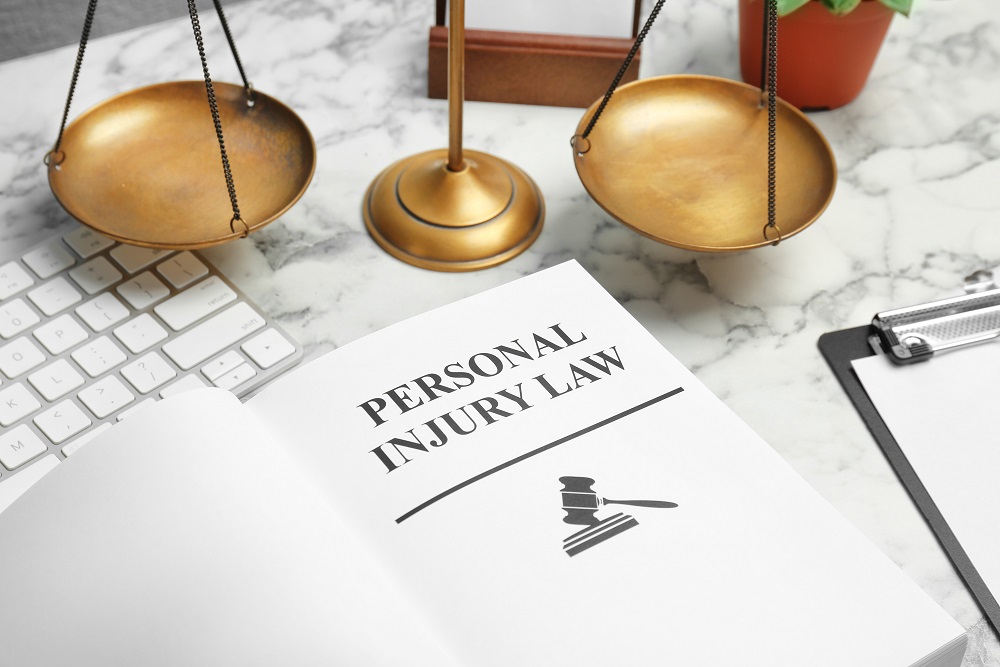Out-of-Court Personal Injury Case Settlements: Things to Know

Book with words PERSONAL INJURY LAW and scales of justice on table, closeup
When you are involved in a personal injury case, the goal is usually to obtain compensation for the harm that you have suffered. While the process of pursuing a legal claim can take up a lot of time and money, there is always the option to try and reach an out-of-court settlement with the other party to save on both. In this blog post, we will discuss some things you should know about out-of-court personal injury case settlements.
How Do Personal Injury Settlements Work?
An out-of-court settlement is an agreement between the parties to a legal dispute that resolves the case without the need for a trial. In a personal injury case, this means that the person who was injured (the plaintiff) agrees to accept a payment from the person or entity they are suing (the defendant) in exchange for dropping their legal claim.
How Much Compensation Is Typical in Personal Injury Cases?
The type of case and the strength of the evidence in the case can often determine the amount of compensation that a plaintiff will receive in a settlement. In car accident cases, for example, the amount of compensation is usually determined by the amount of money that the plaintiff’s car is worth and the cost of medical bills for injuries related to the accident, as this is what the plaintiff is seeking repayment for.
If the case involves medical malpractice, the plaintiff may be able to receive compensation for pain and suffering and for any permanent disability that the plaintiff has as a result of their injuries.
How a Lawyer Can Help with Personal Injury Settlement Amounts
A lawyer can help with the negotiation of settlements and can give a plaintiff advice on the amount they are likely to receive. Settlement negotiations are often handled by an attorney, who can help the plaintiff and defendant negotiate an agreement that is likely to be approved by the court.
The attorney will often handle the financial aspects of the settlement, such as how the money is paid and how it is distributed to the plaintiff and other beneficiaries. A plaintiff’s attorney can also help with the preparation of the plaintiff’s claim and the investigation of the facts of the case, including gathering the necessary evidence.
The plaintiff’s attorney can also help with the preparation of the plaintiff’s case for trial, including presenting their version of events and discussing any legal issues that may arise.
Advantages of Settling Out of Court
One of the main advantages of an out-of-court settlement is that it can be done relatively quickly. Unlike a trial, which can take months or even years to complete, a settlement can be reached in a matter of weeks or months.
Another advantage of out-of-court settlements is that they can be less expensive than going to trial. When you go to trial, you will likely have to pay for the services of an attorney, as well as court costs. An out-of-court settlement, on the other hand, can be negotiated directly between the parties, without the need for a judge or jury.
Additionally, there is more certainty in an out-of-court settlement, as the plaintiff knows exactly how much compensation they will receive. The outcomes of trials are often unpredictable, and the plaintiff might end up with less compensation than expected.
Disadvantages of Settling Out of Court
An out-of-court settlement may not provide as much compensation as a trial would. This is because a trial allows a judge or jury to decide how much the plaintiff should be compensated. Defendants may also use settlement negotiations as an opportunity to pressure or intimidate the plaintiff to accept a lower settlement offer.
Conclusion
Out-of-court settlements are a common outcome in personal injury cases. However, the process of settling a case can be complex and confusing, particularly for those without legal experience. RotondoLaw.com, a personal injury attorney can provide guidance and support throughout the process, from negotiating the settlement amount to understanding the terms of the agreement.
It is important to keep in mind that, while settlements can be faster and less expensive than going to trial, they may not always provide as much compensation as a trial would. It is always best to consult with an attorney who can advise you on the best course of action and help you make an informed decision about whether to settle your case or go to court.





